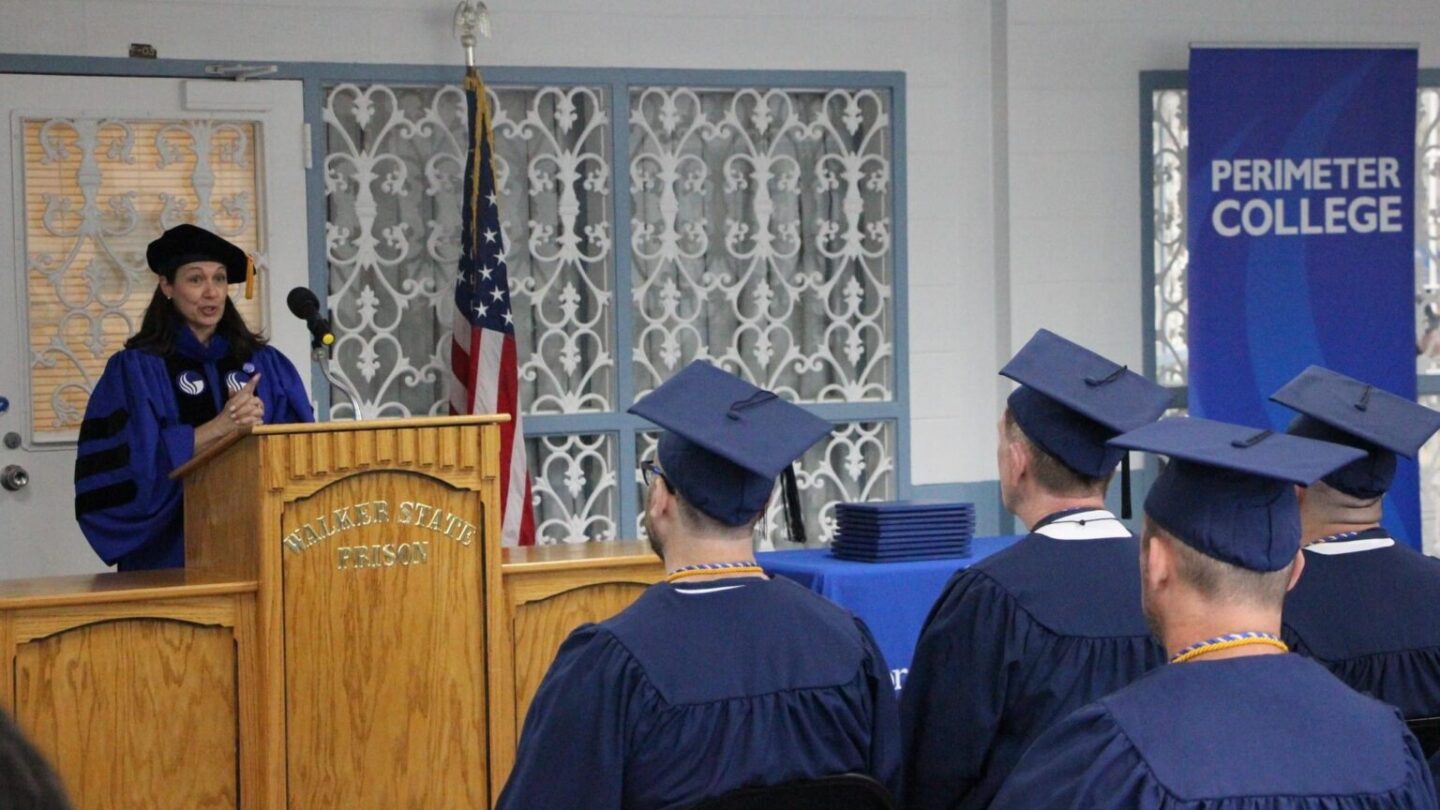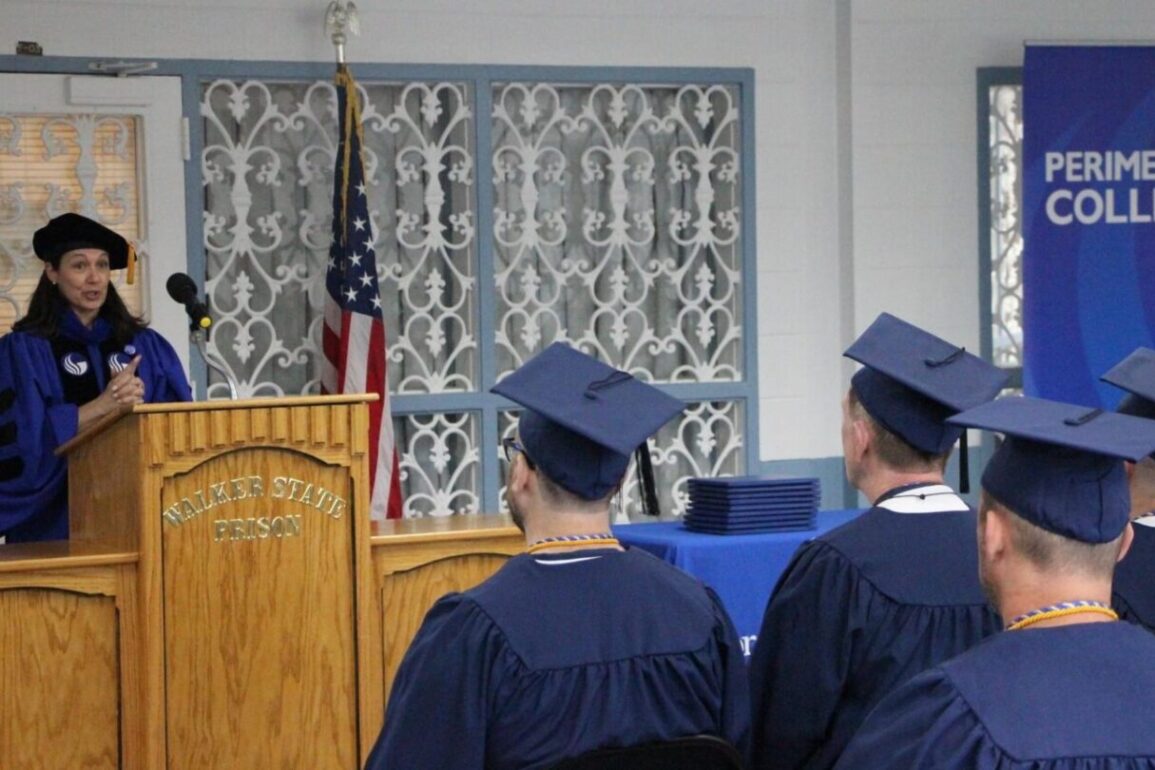
A group at Georgia State University (GSU) is attempting to save a program for incarcerated people seeking a degree.
The Prison Education Project, or PEP, was started at GSU in 2016.
It offers for-credit college courses at Phillips State Prison and last year, it saw the first-ever class of incarcerated students at Walker State Prison graduate, all with honors.
The program also provides enrichment courses at the U.S. Penitentiary in Atlanta.
But, Provost Nicolle Parsons-Parollard says the university can no longer afford to keep it running due to budget shortfalls.
“While the decision was not made lightly, it reflects the university’s commitment to responsible financial management and ensuring existing educational initiatives receive the necessary support and resources,” Parsons-Pollard said.
The program is primarily funded by outside donations from organizations like the American Family Insurance Institute for Corporate and Social Impact and the Laughing Gull Foundation, but some of those funds are set to run out as soon as August.
Parsons-Pollard said it’s estimated that GSU spends about $180,000 a year on instructional and administrative expenses, plus another $12,000 to hire a graduate student to support the program.
As of last year, any person who is incarcerated, regardless of sentence length or conviction history, is also now eligible for a Pell Grant to pursue postsecondary education. Universities seeking PEP designation must meet a new slate of requirements and offer even more resources for the program.
That’s a lot for a public university that saw its budget slashed by $24.4 million by the Georgia General Assembly in Fiscal Year 2024 and anticipates another shortfall next fiscal year, says Parsons-Pollard.
“These financial challenges make it difficult to allocate resources to new initiatives, including the PEP program,” she said.
GSU student Madelief Tilder has been involved with the program for two years. She and other students, faculty and staff are supporting a petition calling for a meeting with Parsons-Pollard to try to find another solution.
“What I think has always really stood out to me about our program is that for those few hours a week that they’re in a classroom, they can be students in the same way that we are,” she said.
“They are no longer just another number within the institution that they’re in. And, we always talk about how degrees serve to get a better job. I think that’s why a lot of us are in school. … “It’s a beacon of hope for so many people.”
Katherine Perry, a professor and co-founder of the program, said even the idea of raising additional funds to keep the program going has been shut down by the GSU administration.
“Ninety-five percent of the people in prisons come back out,” Perry said.
“Those are going to be our neighbors, and don’t we want to have offered them a glimpse at something different than the lives that got them where they were?”
Provost Parsons-Pollard said the plan is to phase out the program over the next few years.
However, discussions are underway with donors to establish a new program for students who have personal experience with incarceration, either directly or through a parent or guardian.
The online petition, titled “Save GSUPEP,” has received about two dozen signatures as of Wednesday, March 20.
This post was originally published on this site be sure to check out more of their content.









